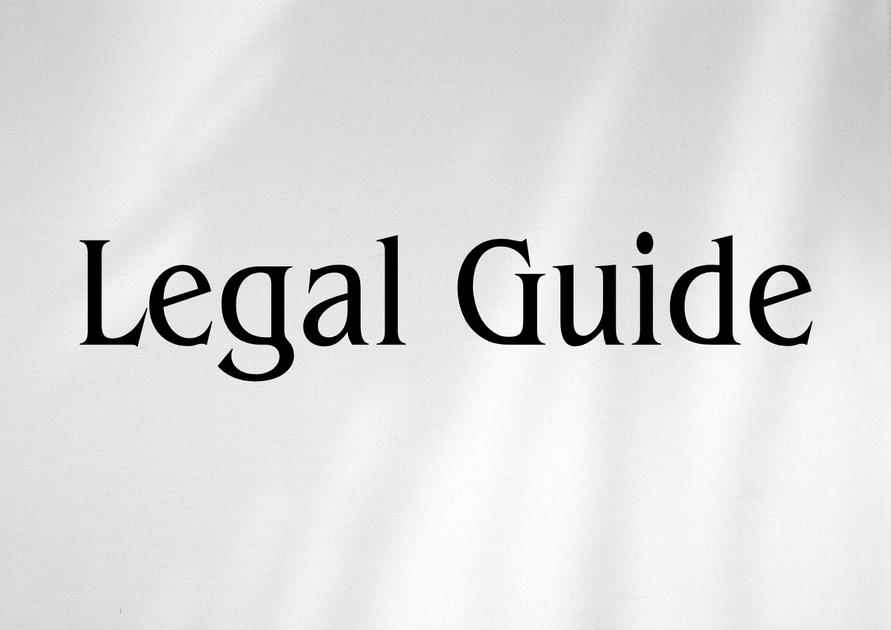Introduction: The Strategic Relevance of Contract Enforcement in Saudi Arabia for UAE Enterprises
Contract enforcement under Saudi law has become a focal point for UAE companies expanding into or transacting within the Kingdom of Saudi Arabia (KSA). Given the dynamic integration between GCC economies and the recent overhaul of commercial and civil procedures in the Kingdom, understanding Saudi contract enforcement mechanisms is crucial for any UAE-based business, legal executive, or compliance officer. The legal context is especially pertinent amid ongoing updates within the UAE—for example, the implementation of Federal Decree Law No. 31 of 2021 (Concerning the Issuance of the Crimes and Penalties Law) and the recent 2025 updates to the UAE Commercial Transactions Law. These changes underscore the value of cross-jurisdictional awareness and proactive risk management for those doing business in or with Saudi partners.
This article serves as an expert guide on the core legal structures, procedures, and remedies associated with contract enforcement under Saudi law, the practical impact for UAE businesses, and actionable recommendations for compliance and dispute mitigation. We blend statutory review, consultancy insights, process charts, case studies, and strategic compliance advice for a holistic legal understanding relevant to the UAE’s current commercial landscape.
Table of Contents
- Overview of the Saudi Legal Framework for Contract Enforcement
- Determining Contract Validity under Saudi Law
- Step-by-Step Procedures for Contract Enforcement
- Remedies Available to Aggrieved Parties
- Case Studies and Real-World Scenarios
- Risks of Non-Compliance for UAE Businesses
- Effective Contract Compliance Strategies
- Comparing Old and New Saudi Enforcement Laws
- The Evolution of Judicial Institutions and New Enforcement Tools
- Cross-Border Perspectives and UAE Business Relevance
- Conclusion: Navigating Change and Ensuring Legal Certainty
Overview of the Saudi Legal Framework for Contract Enforcement
The core sources of contract law in Saudi Arabia are the Shari’ah (Islamic law) and government-issued regulations such as the Saudi Civil Transactions Law (Royal Decree No. M/191 dated 19/11/1444H) introduced in June 2023 and effective as of December 2023. Key supporting structures include the Judiciary Law, the Law of Procedure before Sharia Courts (Royal Decree No. M/1, 1435H), the Enforcement Law (Enforcement Law issued by Royal Decree No. M/53, 1433H), and the Commercial Courts Law (Royal Decree No. M/93, 1441H).
The Saudi Ministry of Justice oversees implementation, supported by a robust and recently modernized court system, alongside specialized enforcement courts and electronic services. Saudi Arabia’s accession to the New York Convention (1958) also enables recognition and enforcement of arbitral awards, which is particularly relevant to cross-border contracts involving UAE parties.
Key Features Relevant for UAE Businesses
- Saudi contract enforcement is primarily shaped by Shari’ah principles, often emphasizing contract certainty, mutual consent, and prohibitions against unjust enrichment or interest (riba).
- Legislative updates and digitalization in Saudi courts have notably expedited claims, benefitting foreign parties seeking transparent and enforceable outcomes.
- The recent Civil Transactions Law introduces codified contractual doctrines and aligns statutory practices closer to regional and international standards—bridging legal frameworks between Saudi Arabia, the UAE, and broader GCC markets.
Determining Contract Validity under Saudi Law
Shari’ah Foundations and Regulatory Requirements
For a contract to be enforceable in Saudi Arabia, core Shari’ah elements must be present:
- Offer and Acceptance: Clear expression of mutual intent
- Capacity: All parties must have the legal ability to contract
- Lawful Subject Matter: The contract’s object cannot contravene Islamic law or public order
- Certainty and Clarity: Ambiguity can render a contract void
- Absence of Gharar (Uncertainty): Excessive risk or ambiguity is prohibited
Saudi regulations also require certain contracts—such as real estate or large-scale commercial agreements—to be notarized under Royal Decree M/191 or registered through official platforms.
| Legal Framework | Saudi Arabia | UAE (2025 Updates) |
|---|---|---|
| Law Governing Contracts | Civil Transactions Law of 2023 Shari’ah principles |
Federal Decree Law No. 5 of 1985 (Civil Transactions Law) Recent amendments via Federal Decree Law No. (43) of 2023 |
| Formality Requirements | Certain contracts must be notarized/registered | Increased digitalization, e-contract acceptance recognized |
| Interest Clauses | Prohibited | Permitted (subject to caps) |
| Remedies for Ambiguity | Contract may be void | Courts may interpret or rectify ambiguous terms |
Practical Insight
UAE businesses transacting with Saudi partners should always tailor contracts to ensure full compliance with both Shari’ah and Saudi statutory requirements. Careful due diligence and local legal review are non-negotiable, particularly for high-value transactions subject to registration or requiring explicit compliance with Saudi formality rules.
Suggested Visual: Compliance Checklist Table
Consider adding a downloadable compliance checklist for contract validity under Saudi law—detailing required clauses, notarial stages, and best practices for dispute avoidance.
Step-by-Step Procedures for Contract Enforcement
Initiating the Process: Filing a Claim
The starting point for enforcing contracts in Saudi Arabia is typically the amicable settlement phase, followed—if unsuccessful—by the formal lodging of a claim before the competent court or enforcement authority. Enforcement is streamlined by the Saudi Ministry of Justice’s electronic platform (“Najiz”) for case management and document submission.
Procedural Roadmap
- Pre-action Negotiation (optional, but encouraged—especially for business continuity)
- Submission of Claim (via Najiz for commercial contracts; evidence must be in Arabic or certified translation)
- Appointment of Adjudication Entity (General Court, Commercial Court, or specialized Enforcement Court)
- Notification to Defendant (formal court notice; via electronic and traditional means)
- Exchange of Pleadings and Supporting Evidence
- Hearing and Judicial Investigation (including witness testimony, expert reports if needed)
- Issuance of Judgment or Enforcement Order
- Appellate Review (if challenged—limited timelines apply under the Law of Procedure before Sharia Courts)
- Execution Phase (including asset attachment, bank account freezes, and public auction if necessary)
Suggested Visual: Contract Enforcement Process Flowchart
A visual process diagram here would clarify the typical progression from negotiation to enforcement of judgment under Saudi law.
Remedies Available to Aggrieved Parties
Monetary Remedies
- Specific Performance: Courts may order the defaulting party to fulfill contractual obligations if performance is possible and lawful (e.g., delivery of goods or transfer of property).
- Damages: Compensation for financial loss flowing from breach; calculation adheres to actual, proven damages only—anticipated profits or indirect losses are rarely recoverable.
- Restitution: Return of payment or property where a contract is voided.
Non-Monetary Remedies
- Termination/Rescission of Contract: Upon material breach or where remedy is impossible
- Injunctions: Court orders preventing a party from acting inconsistently with contractual obligations (rare, mostly in IP and commercial secrecy cases)
Limitations on Damages: Shari’ah Principles
Certain types of damages (such as consequential damages or punitive damages) are not generally available in Saudi law, due to Shari’ah constraints and the emphasis on actual, substantiated financial harm.
| Remedy | Saudi Law | UAE Law (2025 Updates) |
|---|---|---|
| Specific Performance | Available (subject to possibility and Shari’ah limits) | Available (broader scope, including substitute performance in some cases) |
| Damages | Actual loss only (not speculative or indirect) | Actual and, in limited cases, foreseeable loss or loss of profit |
| Interest on Late Payment | Prohibited | Permitted within statutory caps |
| Arbitral Enforcement | Permitted (especially post-2012 Arbitration Law) | Strongly supported, including foreign award facilitation under New York Convention |
Case Studies and Real-World Scenarios
Example 1: Default in a Cross-Border Supply Contract
Scenario: A UAE-based manufacturer contracts with a Saudi distributor for annual supply of electronics. The Saudi party fails to pay on time and withholds further orders. The contract specifies Saudi law as governing.
- Legal Route: The UAE company files a claim via Najiz, submitting evidence in certified Arabic, and requests both payment of arrears and specific performance.
- Outcome: The Enforcement Court rules for actual dues plus return of undelivered products but declines to award anticipated profit on future sales, citing Shari’ah principles.
- Compliance Risk: Failure to localize the contract—such as by including non-conforming interest or penalty clauses—could have rendered large sections unenforceable.
Example 2: JV Termination and Asset Protection
Scenario: A UAE company enters a joint venture with a Saudi counterpart. Disputes arise over control and funding. The Saudi party tries to shift assets out of the JV before dispute resolution concludes.
- Legal Route: The UAE company seeks an urgent interim order (‘precautionary seizure’) through the Commercial Court, to protect JV assets. They also petition for contract rescission and restitution of upfront investment.
- Outcome: Court grants interim measure preventing dissipation of key assets, then awards restitution for proven capital contributions. However, no additional compensation is awarded for ‘opportunity loss.’
Risks of Non-Compliance for UAE Businesses
Key Exposure Points
- Contract Formality Gaps: Unregistered or improperly drafted contracts may be deemed void or unenforceable.
- Non-Conforming Clauses: Provisions that violate Shari’ah or Saudi public policy—such as conventional interest, excessive penalties, or vague terms—will be struck out or ignored by courts.
- Language Barriers: Submitting evidence or contracts in English alone can delay proceedings or weaken claims; certified Arabic versions are mandatory.
- Jurisdictional Challenges: Ignorance of Saudi exclusive jurisdiction provisions exposes UAE parties to unexpected legal hurdles.
| Risk | Potential Outcome | Mitigation Strategy |
|---|---|---|
| Interest-bearing clauses | Rendered void | Remove/replace with Shari’ah-compliant wording |
| Poor translation | Delay/disqualification | Use certified legal translators for all filings |
| Lack of notarization | Contract unenforceable | Review local formality requirements |
| Vague dispute resolution | Forum disputes, delay | Specify judicial/arbitral venues clearly |
Effective Contract Compliance Strategies
- Local Legal Review: Always engage Saudi-qualified counsel before finalizing any contract with a Saudi nexus.
- Alignment with Shari’ah: Vet all contractual provisions for compatibility with Islamic principles—especially regarding payment terms, remedies, and dispute resolution.
- Clear Dispute Clauses: Stipulate forums (courts or arbitration), choice of law, and language of proceedings as precisely as possible.
- Document Management: Organize evidence trail, translations, receipts, and communication logs from the outset.
- Training and Awareness: Empower UAE-based contract managers with regular workshops on new Saudi law developments and enforcement practices.
Comparing Old and New Saudi Enforcement Laws
| Aspect | Pre-2023 | Post-2023 |
|---|---|---|
| Codified contract doctrines | Limited; mostly uncodified Shari’ah interpretation | Civil Transactions Law explicitly codifies principles |
| Electronic filing | Partial; physical presence often required | Najiz platform enables full e-filing and digital evidence |
| Interim relief measures | Narrow scope, lengthy process | Broader, faster provisional measures available |
| Time to final ruling | Can exceed 12 months | Aim for 6–8 months on straightforward cases |
| Arbitral award enforcement | Inconsistent (pre-2012) | Strongly supported following Arbitration Law No. M/34 (2012) |
The Evolution of Judicial Institutions and New Enforcement Tools
Specialized Enforcement Courts and Digital Transformation
Saudi Arabia has invested heavily in modern judicial infrastructure, launching dedicated enforcement courts in all major regions and digitized litigation platforms. These move contract enforcement proceedings away from general courts, expedite execution measures, and buffer UAE investors from “forum shopping” or localized legal blockages.
Relevant Update for UAE Executives
Since 2023, the Najiz portal has become the de facto entry point for enforcement claims, enabling real-time tracking of case status and electronic service of summons—a significant leap forward compared to pre-reform realities.
Cross-Border Perspectives and UAE Business Relevance
Recognition of Foreign Judgments and Arbitral Awards
Saudi Arabia’s membership in the New York Convention (since 1994) and the 2012 Arbitration Law (Royal Decree No. M/34) mean that arbitral awards obtained in the UAE or other member states can now, in most cases, be enforced in Saudi courts—provided the terms do not violate public order or Shari’ah.
Recommendations for UAE Companies
- Where possible, specify arbitration with a seat in the UAE (e.g., Dubai International Arbitration Centre), ensuring awards are enforceable in Saudi Arabia under the New York Convention.
- Anticipate and prepare for possible “public policy” objections—structure contracts and arbitral procedures to minimize any conflict with Saudi law norms.
Conclusion: Navigating Change and Ensuring Legal Certainty
Enforcing contracts under Saudi law has shifted dramatically thanks to statutory reform, the digitization of judicial procedures, and clearer cross-border dispute pathways. For UAE businesses, these improvements present both unprecedented opportunities and compliance challenges. Proactive engagement with new Saudi regulations—notably the Civil Transactions Law, digital case management, and updated enforcement court protocols—will define future success in Saudi-facing transactions.
Ultimately, the most effective risk management strategy is informed anticipation: carefully draft contracts with local expertise, align all terms with Shari’ah requirements, leverage the new digital tools for evidence and procedure, and maintain a robust compliance culture across all cross-border operations.
Looking ahead, as the UAE continues to update its own commercial and enforcement laws (Federal Decree Law No. 43 of 2023, and the ongoing 2025 legislative updates), synergy with Saudi reforms will only grow. UAE businesses investing the effort now will reap enduring legal certainty in their Saudi engagements amidst a transformative GCC legal landscape.




